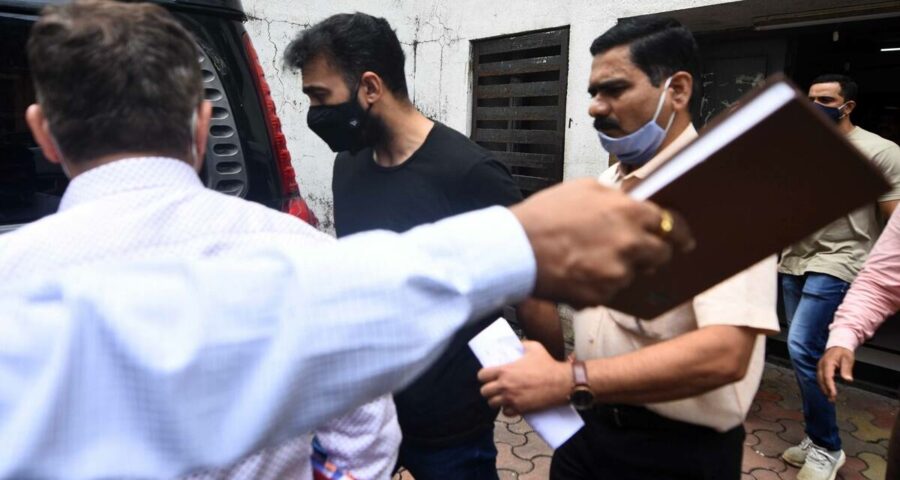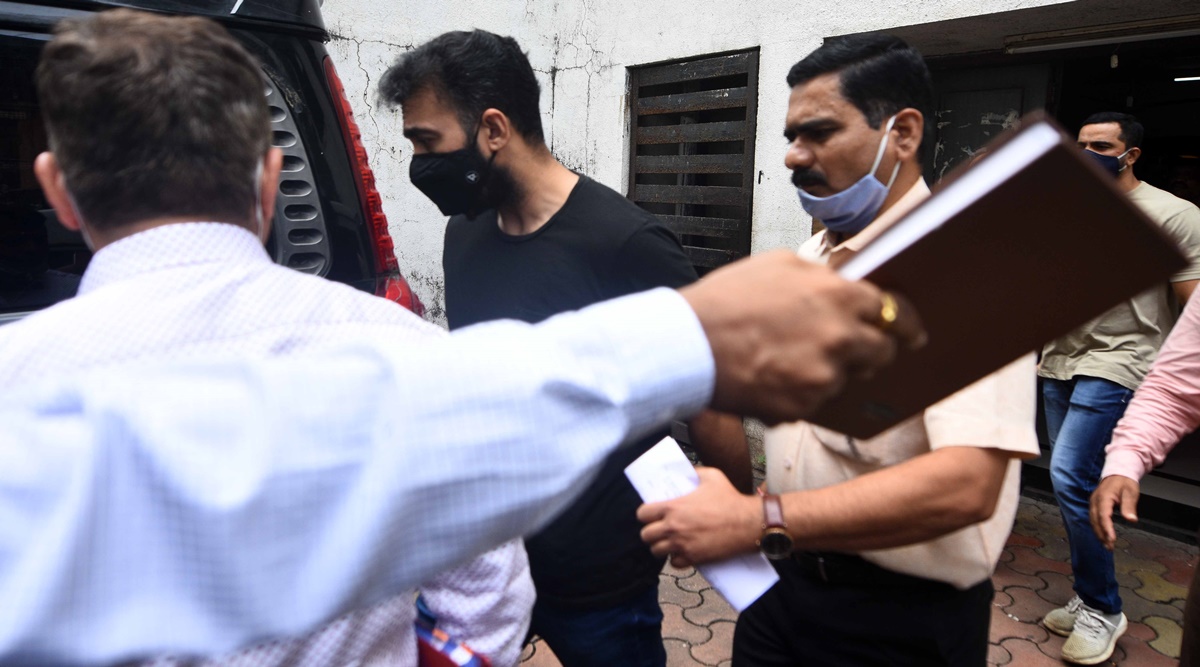Raj Kundra told the court that his arrest was illegal as the police did not follow proper criminal procedure.
The Mumbai Police Thursday argued in the Bombay High Court that businessman Raj Kundra’s arrest for his alleged involvement in adult films case was made by following due criminal procedure and to prevent Kundra and co-accused Ryan Thorpe from further destroying or tampering with the evidence in the case.
Kundra, however, told the court that his arrest was illegal as the police did not follow proper criminal procedure. He argued that the charges levelled against him at the time of arrest and also during his first remand had been appended and newer charges including section 201 (punishment for causing disappearance of evidence) of IPC were added as an ‘afterthought’ without informing him about the same.
https://youtube.com/watch?v=zVhehiOy2KM%3Fversion%3D3%26%23038%3Brel%3D1%26%23038%3Bshowsearch%3D0%26%23038%3Bshowinfo%3D1%26%23038%3Biv_load_policy%3D1%26%23038%3Bfs%3D1%26%23038%3Bhl%3Den-US%26%23038%3Bautohide%3D2%26%23038%3Bwmode%3Dtransparent
Kundra further submitted that the police had acted with a vendetta claiming he had refused to acknowledge notice under S. 41A of CrPC which mandated his appearance before a police officer to avoid arrest.
A single-judge bench of Justice A S Gadkari was hearing Kundra’s plea which stated that the latter’s name is not mentioned in the FIR. It alleged that the police searched Kundra’s office and, therefore, had directed him to remain present at the crime branch office. The petition also claimed that he was arrested without being served a notice in violation of laws safeguarding a person from arrest when the offense carries less than seven years of imprisonment. On July 27, Justice Gadkari had asked the Mumbai Police to file a brief reply to the plea.
The Mumbai Police affidavit filed through Kiran Bidve, Police Inspector attached with Property Cell, DCB, CID-Mumbai stated that Kundra and his IT technician Thorpe were duly served with notice under Section 41A of the CrPC and while Thorpe accepted the same, Kundra refused to accept the notice during the search of his office on July 19.
“The fact that the petitioner refused to accept the said notice implies that he refused to co-operate in the investigation. Apart from this, petitioner and his IT technician Ryan Thorpe also started deleting from the WhatsApp group and chat thereby causing evidence of the offence to disappear and tamper with such evidence. Hence, in order to prevent them, accused Kundra and Thorpe were brought to Property Cell, Crime Branch for probe and thereby they were arrested,” the affidavit read.
“I say that after following the due process of law, notice under section 41A (1) of CrPC has been served upon the petitioner prior to his arrest. Hence I deny that arrest is illegal,” Bidve stated and sought dismissal of the plea.
Senior advocate Aabad Ponda and advocate Subhash Jadhav, representing Kundra, submitted that due procedure was not followed and in case the notice was not acknowledged by Kundra, as per criminal procedure, the Investigating officer, who wanted to was required to avail an order from magistrate to arrest the petitioner and same was not followed leading to an ‘arbitrary’ arrest.
Ponda further said that while the police had not made any allegation of destruction of evidence or deletion of WhatsApp messages by the petitioner at the time of arrest or even during the first remand and same was an ‘afterthought’.
“The Police are trying to show the compliance of the section 41A of CrPC, however, they have committed ‘mockery of the criminal procedure,’ Ponda said and sought an interim relief to the petitioner.
Moreover, advocate Abhinav Chandrachud for Thorpe said that while his client had complied with the notice issued by Police, his arrest was ‘illegal’ and sought relief from the Court.
The HC adjourned the hearing to Saturday, August 31, when Public Prosecutor Aruna Pail will commence arguments against the pleas.
Source: Read Full Article


